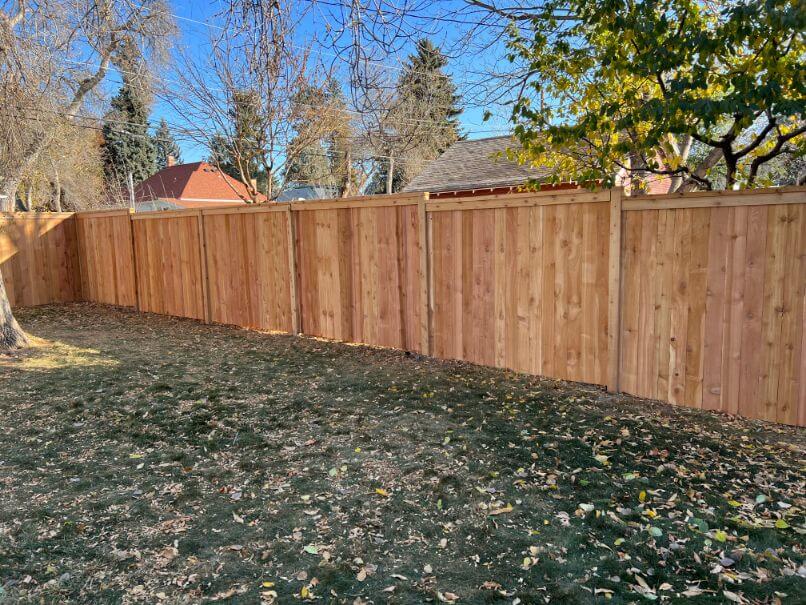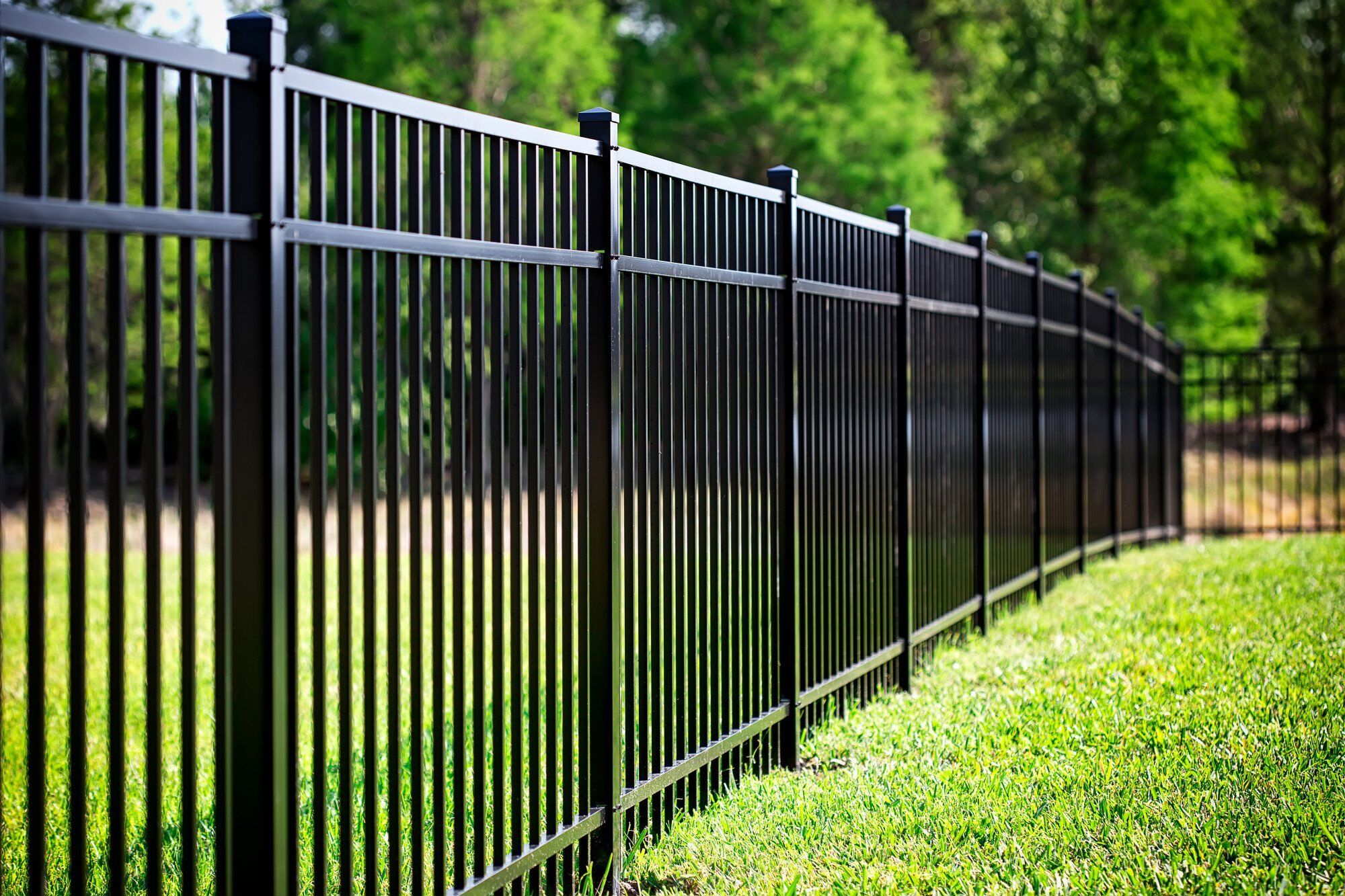All Categories
Featured
Comprehending the authorization requirements in your location is crucial if you're thinking about mounting a fence around your home. While building a fencing may look like a simple DIY task, a number of policies may govern its construction relying on where you live. Falling short to get the proper authorizations can result in penalties, penalties, or even having to get rid of the fencing altogether. In this guide, we'll break down the different permits you may need to install a fencing and how to ensure your project remains certified with regional laws.
Why Are Allows Necessary for Fence Setup? Licenses are required to make certain that the fence you construct adheres to regional structure codes, zoning guidelines, and safety criteria. They guarantee that the fence won't obstruct utilities, website traffic flow, or create risks for pedestrians.
![]()
Sorts Of Permits You May Demand. Building Permit. A building permit is one of the most common demand for mounting a fence. This authorization makes sure that the structure you construct follow neighborhood safety and security codes and laws. If your fence exceeds a specific height (typically around 6 feet), you might require to acquire a building authorization. The regional authorities will normally review your strategies to make sure that your fencing is structurally sound and secure.
Zoning License. Zoning laws regulate land use in your area, and they typically manage where fences can be set up, as well as exactly how tall they can be. A zoning license ensures that your fence conforms with these guidelines. Your fence might need to be set back a particular distance from walkways or building lines. Zoning regulations can vary by neighborhood, so it's critical to inspect the certain guidelines that relate to your area.
Homeowners Association (HOA) Approval. You may require approval prior to installing a fence if your property is part of a homeowners association. HOAs commonly have rigorous regulations concerning the type, style, and materials used for fences to preserve an uniform appearance throughout the community. The HOA might need you to submit thorough strategies or request approval prior to setup. Make certain you follow these guidelines to prevent potential penalties or fines.
Specialized Permits. In many cases, you may require specialty permits based upon the area of your home or the nature of your fence. As an example, if your residential or commercial property remains in a disaster area, you might require additional permits to make sure that your fencing does not obstruct drainage or water flow. If you prepare to build a fencing near an eco protected location, you may need an unique license to conform with ecological laws.
![]()
Utility Easements and Utility Business Approvals. Some residential properties have energy easements, which are locations assigned for utility pipes, wires, or lines. Before mounting a fence, you need to check if your home has an easement. Developing a fencing within an easement might disrupt energy maintenance or damages underground lines. You may need authorization from the energy company or neighborhood authorities before continuing with the installment.
Just How to Identify Which Allows You Need. Consult Regional Authorities. The initial step in figuring out the permits called for is to call your local structure division or zoning workplace. They can give particular details concerning what permits are required for your area. Numerous cities have on-line resources or portals where you can examine the requirements or perhaps use for an authorization online.
Speak With a Professional Fencing Specialist. A local fence service provider is usually accustomed to the authorization procedure and regional guidelines. They can assist you navigate the requirements and make sure that your task is compliant. Several specialists additionally handle the authorization application process in your place, conserving you time and effort.
Review Your Community's HOA Standards. If you reside in a community regulated by an HOA, ensure to examine their standards before getting any licenses. The HOA may call for certain designs, products, or height limitations for fencings within the area. Submit your plans to them for approval before continuing.
![]()
Repercussions of Not Obtaining a License. Mounting a fence without the required licenses can lead to severe consequences. Possible customers may think twice to acquire a residential property with an unpermitted fence, specifically if it's in infraction of zoning laws.
Final thought. Before mounting a fencing on your property, make certain you comprehend the local policies and acquire any kind of needed permits. Building permits, zoning licenses, HOA authorizations, and specialized allows all play an important function in guaranteeing that your fencing is safe, lawful, and certified.
Why Are Allows Necessary for Fence Setup? Licenses are required to make certain that the fence you construct adheres to regional structure codes, zoning guidelines, and safety criteria. They guarantee that the fence won't obstruct utilities, website traffic flow, or create risks for pedestrians.

Sorts Of Permits You May Demand. Building Permit. A building permit is one of the most common demand for mounting a fence. This authorization makes sure that the structure you construct follow neighborhood safety and security codes and laws. If your fence exceeds a specific height (typically around 6 feet), you might require to acquire a building authorization. The regional authorities will normally review your strategies to make sure that your fencing is structurally sound and secure.
Zoning License. Zoning laws regulate land use in your area, and they typically manage where fences can be set up, as well as exactly how tall they can be. A zoning license ensures that your fence conforms with these guidelines. Your fence might need to be set back a particular distance from walkways or building lines. Zoning regulations can vary by neighborhood, so it's critical to inspect the certain guidelines that relate to your area.
Homeowners Association (HOA) Approval. You may require approval prior to installing a fence if your property is part of a homeowners association. HOAs commonly have rigorous regulations concerning the type, style, and materials used for fences to preserve an uniform appearance throughout the community. The HOA might need you to submit thorough strategies or request approval prior to setup. Make certain you follow these guidelines to prevent potential penalties or fines.
Specialized Permits. In many cases, you may require specialty permits based upon the area of your home or the nature of your fence. As an example, if your residential or commercial property remains in a disaster area, you might require additional permits to make sure that your fencing does not obstruct drainage or water flow. If you prepare to build a fencing near an eco protected location, you may need an unique license to conform with ecological laws.

Utility Easements and Utility Business Approvals. Some residential properties have energy easements, which are locations assigned for utility pipes, wires, or lines. Before mounting a fence, you need to check if your home has an easement. Developing a fencing within an easement might disrupt energy maintenance or damages underground lines. You may need authorization from the energy company or neighborhood authorities before continuing with the installment.
Just How to Identify Which Allows You Need. Consult Regional Authorities. The initial step in figuring out the permits called for is to call your local structure division or zoning workplace. They can give particular details concerning what permits are required for your area. Numerous cities have on-line resources or portals where you can examine the requirements or perhaps use for an authorization online.
Speak With a Professional Fencing Specialist. A local fence service provider is usually accustomed to the authorization procedure and regional guidelines. They can assist you navigate the requirements and make sure that your task is compliant. Several specialists additionally handle the authorization application process in your place, conserving you time and effort.
Review Your Community's HOA Standards. If you reside in a community regulated by an HOA, ensure to examine their standards before getting any licenses. The HOA may call for certain designs, products, or height limitations for fencings within the area. Submit your plans to them for approval before continuing.

Repercussions of Not Obtaining a License. Mounting a fence without the required licenses can lead to severe consequences. Possible customers may think twice to acquire a residential property with an unpermitted fence, specifically if it's in infraction of zoning laws.
Final thought. Before mounting a fencing on your property, make certain you comprehend the local policies and acquire any kind of needed permits. Building permits, zoning licenses, HOA authorizations, and specialized allows all play an important function in guaranteeing that your fencing is safe, lawful, and certified.
Latest Posts
Find Out Reduce Expenses on Car Maintenance with Montclare Auto Repair’s Limited-Time Deals
Published May 26, 25
1 min read
Uncover Oil Changes & More: Complete Services Guide from Montclare Auto Repair
Published May 25, 25
1 min read
Unlock Your Financial Partner at WyHy – Top Benefits for Your Money Goals
Published May 25, 25
1 min read
More
Latest Posts
Find Out Reduce Expenses on Car Maintenance with Montclare Auto Repair’s Limited-Time Deals
Published May 26, 25
1 min read
Uncover Oil Changes & More: Complete Services Guide from Montclare Auto Repair
Published May 25, 25
1 min read
Unlock Your Financial Partner at WyHy – Top Benefits for Your Money Goals
Published May 25, 25
1 min read